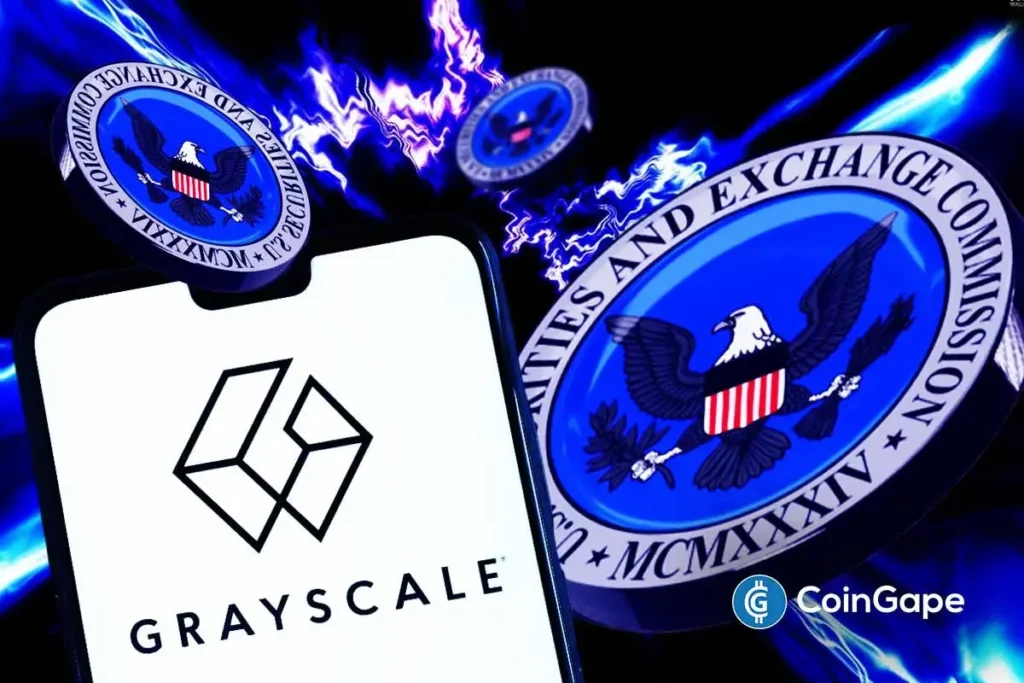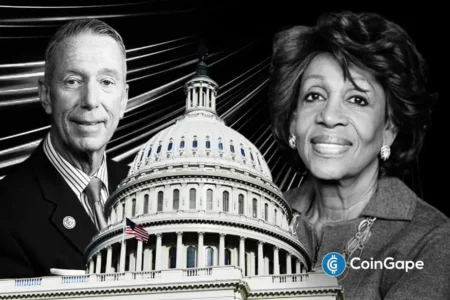Grayscale vs. SEC: A Legal Battle Over Bitcoin ETF Proposal
Grayscale Investments, a prominent asset manager in the cryptocurrency space, has recently challenged a stay order issued by the Securities and Exchange Commission (SEC) regarding its proposal to convert its Digital Large Cap Fund (GDLC) into an Exchange-Traded Fund (ETF). This legal contention not only raises important questions about regulatory authority but also highlights the growing tension between traditional financial regulations and the evolving cryptocurrency market.
Grayscale’s Legal Stance
In a detailed letter to the SEC, Grayscale’s legal team, Davis Polk, asserts that the Commission overstepped its authority by imposing a stay order under Section 19b of the Exchange Act. The lawyers argue that this section explicitly grants the SEC the power to approve or disapprove rule change proposals, not to issue stay orders arbitrarily. The SEC had initially approved Grayscale’s ETF proposal but then placed a stay order, leading to confusion and frustration among stakeholders.
The crux of the argument is that Section 19(b)(2)(D) of the Exchange Act stipulates that if the SEC fails to act on a proposal within 240 days of its public introduction, it is considered approved by default. Grayscale contends that this provision should negate the SEC’s stay order, since it did not finalize its decision within the required timeframe.
The Delays and Their Consequences
The delay caused by the SEC’s stay order has significant implications for Grayscale, NYSE Arca (the exchange intended to list the fund), and current investors. The GDLC fund is an index-based crypto ETF that is expected to hold major cryptocurrencies like Bitcoin, Ethereum, Solana, XRP, and Cardano, thereby providing investors with an accessible way to invest in a diversified digital asset portfolio.
According to Davis Polk, not only is the proposal being hindered, but the delay also jeopardizes potential returns for investors waiting to enter the burgeoning crypto market. With the demand for crypto ETFs rising, any postponement in launching Grayscale’s fund could materially impact its market position and competitiveness.
Exploring Options to Rectify the Situation
While Grayscale considers various strategies to navigate the current situation, there is a growing inclination among involved parties to petition the SEC to lift the stay. This would enable the fund to launch while the agency’s review process remains ongoing. However, legal experts speculate that an expeditious resolution could come if the SEC is willing to recognize that its stay order cannot exceed the statutory timeline set forth in Section 19(b)(2).
Industry observers, including market expert Nate Geraci, emphasize the importance of being first to market in the rapidly evolving landscape of cryptocurrency ETFs. With competitors, such as Truth Social, also eyeing similar proposals, time is of the essence for Grayscale.
Implications for the Cryptocurrency Market
This legal tussle not only affects Grayscale and its stakeholders but also has wider implications for the entire cryptocurrency market. An ETF approval for a digital asset fund could pave the way for more mainstream adoption of cryptocurrencies. Investors are increasingly looking for regulated options to safely engage with digital currencies, and a successful ETF could encourage more institutional investment in the space.
The ongoing challenges faced by Grayscale highlight the complex interaction between cryptocurrency innovation and existing regulatory frameworks. As the SEC navigates its regulatory responsibilities, the outcome of this dispute could set critical precedents affecting future digital asset regulations.
The Path Forward
The road ahead remains uncertain, but Grayscale’s tenacity underscores its commitment to seeing the ETF proposal through to fruition. With legal avenues being explored and public sentiment leaning towards greater acceptance of cryptocurrencies, the SEC may need to reconsider its approach to crypto ETF requests in the future. The financial world is watching closely, as any ruling could have ramifications far beyond just one asset manager.
As this scenario unfolds, it serves as a reminder of the delicate balance between regulation and innovation in the fast-paced realm of digital assets. Stakeholders may find themselves at a significant crossroads, with the potential for both growth and setback depending on how the commission ultimately rules.
Conclusion
Grayscale’s challenge to the SEC’s stay order serves as an emblematic case within the cryptocurrency sector, encapsulating the ongoing struggle for regulatory clarity. The implications of this battle extend beyond Grayscale to the broader cryptocurrency ecosystem and highlight the urgent need for updated regulations that can keep pace with innovation. As the industry continues to evolve, stakeholders will need to stay informed and adapt to changes in the regulatory landscape to ensure they remain competitive and compliant in the digital frontier.
Navigating the complexities of the regulatory environment is crucial as interest in cryptocurrency investments grows. By addressing concerns like these, regulators can cultivate a more balanced relationship with the burgeoning digital asset market, ultimately benefitting all parties involved.
















